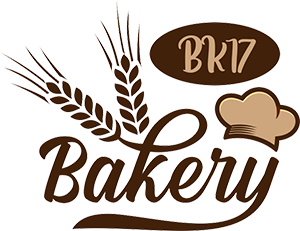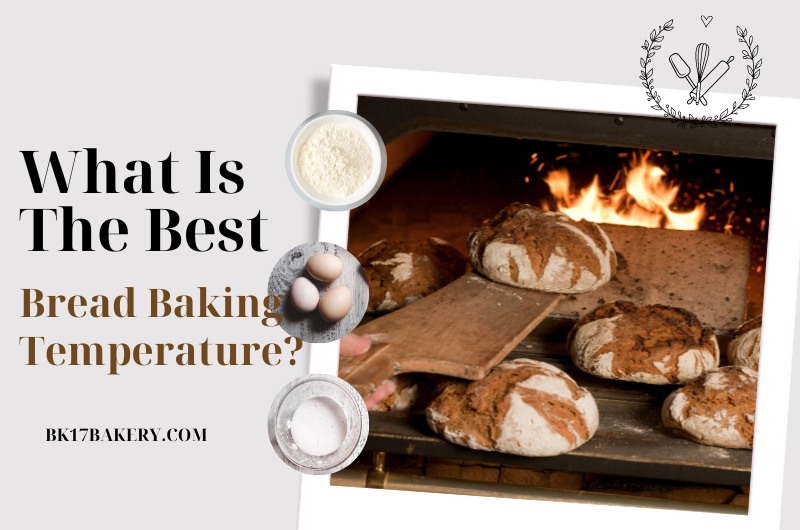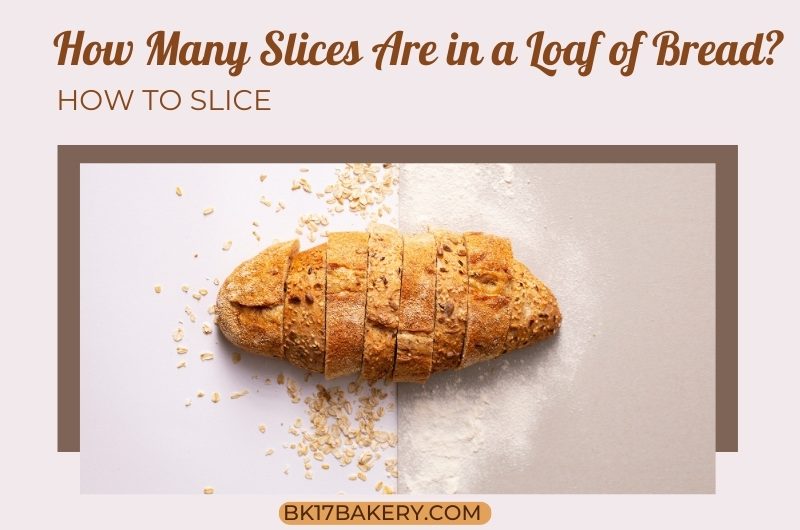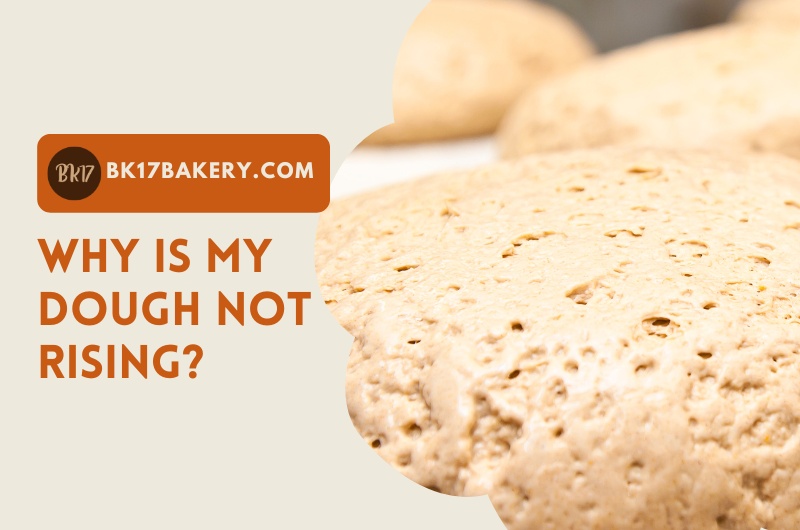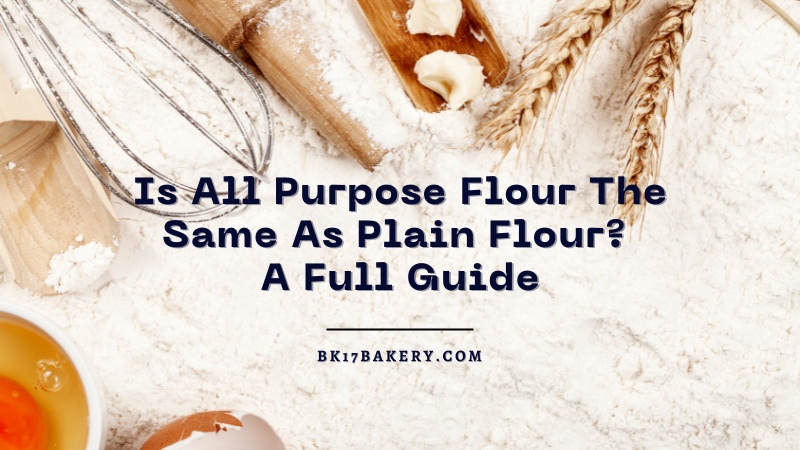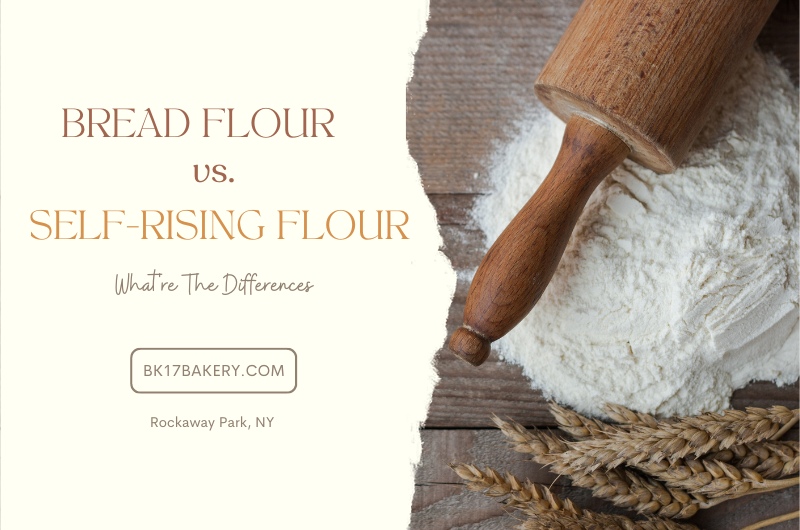Yeast and flour need a perfect environment for proper raise. Hence, those who fail to ensure the right baking temperatures for bread can never gauge the best results – even when the rest of the process is perfect.
As someone who succeeded in baking tons of bread types – and failed just as much to learn my lessons – I have a lot to share in this regard. Keep scrolling for my verdict!
In This Article
What Temperature To Bake Bread?
The optimal temperature for bread runs from 350 to 475 °F (or 162 to 240 °C) with an ideal internal temp of 200°F and baking time from 15-60 minutes. Any number outside this range is extremely rare and cannot guarantee the best bread flavor.
Still, at what temp to bake bread also relies on the bread type you choose – which is included in the chart below. Check them out:
| Bread Type | °C | °F | Estimated Baking Duration |
| Bagels | 200 – 230 | 400 – 450 | 20 – 30 mins |
| Baguette | 230 – 240 | 450 – 475 | 15 – 20 mins |
| Banana bread | 175 – 190 | 350 – 375 | 45 – 60 mins |
| Beer bread | 175 – 190 | 350 – 375 | 45 – 60 mins |
| Bialy | 200 – 230 | 400 – 450 | 20 – 30 mins |
| Biscuits | 190 – 200 | 375 – 400 | 15 – 20 mins |
| Boule | 200 – 230 | 400 – 450 | 20 – 30 mins |
| Bread rolls | 190 – 200 | 375 – 400 | 15 – 20 mins |
| Breadsticks | 200 – 230 | 400 – 450 | 20 – 30 mins |
| Brioche | 175 – 190 | 350 – 375 | 30 – 40 mins |
| Burger buns | 190 – 200 | 375 – 400 | 15 – 20 mins |
| Challah | 175 – 190 | 350 – 375 | 30 – 40 mins |
| Chive rolls | 190 – 200 | 375 – 400 | 15 – 20 mins |
| Ciabatta | 200 – 230 | 400 – 450 | 20 – 30 mins |
| Cornbread | 190 – 200 | 375 – 400 | 15 – 20 mins |
| Croissants | 190 – 200 | 375 – 400 | 15 – 20 mins |
| Cupcakes | 175 – 190 | 350 – 375 | 20 – 25 mins |
| Danish pastries | 190 – 200 | 375 – 400 | 15 – 20 mins |
| Dinner rolls | 190 – 200 | 375 – 400 | 15 – 20 mins |
| Donuts | 190 – 200 | 375 – 400 | 15 – 20 mins |
| Easter bread | 175 – 190 | 350 – 375 | 30 – 40 mins |
| English muffins | 200 – 230 | 400 – 450 | 20 – 30 mins |
| Flatbread | 200 – 230 | 400 – 450 | 20 – 30 mins |
| Focaccia | 200 – 230 | 400 – 450 | 20 – 30 mins |
| French bread | 230 – 240 | 450 – 475 | 15 – 20 mins |
| Garlic bread | 200 – 230 | 400 – 450 | 20 – 30 mins |
| Hot cross buns | 175 – 190 | 350 – 375 | 30 – 40 mins |
| Hot Dog buns | 190 – 200 | 375 – 400 | 15 – 20 mins |
| Italian bread | 200 – 230 | 400 – 450 | 20 – 30 mins |
| Matzo | 200 – 230 | 400 – 450 | 20 – 30 mins |
| Monkey bread | 175 – 190 | 350 – 375 | 45 – 60 mins |
| Muffins | 175 – 190 | 350 – 375 | 20 – 25 mins |
| Multigrain bread | 175 – 190 | 350 – 375 | 40 – 50 mins |
| No – knead bread | 200 – 230 | 400 – 450 | 20 – 30 mins |
| Pan de elote | 175 – 190 | 350 – 375 | 30 – 40 mins |
| American style Pizza peel | 200 – 230 | 400 – 450 | 20 – 30 mins |
| Pita- bread | 175 – 190 | 350 – 375 | 30 – 40 mins |
| Pretzels | 200 – 230 | 400 – 450 | 20 – 30 mins |
| Pumpernickel | 175 – 190 | 350 – 375 | 45 – 60 mins |
| Quick bread | 175 – 190 | 350 – 375 | 45 – 60 mins |
| Rye bread | 175 – 190 | 350 – 375 | 40 – 50 mins |
| Scones | 200 – 230 | 400 – 450 | 20 – 30 mins |
| Soda bread dough | 175 – 190 | 350 – 375 | 30 – 40 mins |
| Sourdough bread | 200 – 220 | 400 – 425 | 40 – 60 mins |
| Sprouted bread | 175 – 190 | 350 – 375 | 40 – 50 mins |
| White bread | 175 – 190 | 350 – 375 | 30 – 40 mins |
| Whole wheat bread | 175 – 190 | 350 – 375 | 40 – 50 mins |
| Dry yeast bread | 175 – 190 | 350 – 375 | 30 – 40 mins |
| Sandwich Loaf | 175 – 190 | 350 – 375 | 30 – 35 mins |
| Whole Grain Loaf | 175 – 218 | 350 – 425 | 30 – 40 mins |
| Hamburger Buns | 175 – 205 | 350 – 400 | 15 – 25 mins |
| Zucchini Bread | 162 – 175 | 325 – 350 | 50 – 60 mins |
| Babka | 175 – 190 | 350 – 375 | 40 – 50 mins |
| Potato Bread Loaf | 175 – 190 | 350 – 375 | 35 mins |
| Milk Bread Loaf | 175 | 350° F | 30 – 35 mins |
| Sweet Rolls | 175 – 190 | 350 – 375 | 20 – 25 mins |
What If Your Bread Is Not Listed On The Chart?
For people attempting any bread not mentioned in the chart, check the recipe on trusted websites. Their comprehensive guides should specify clearly the temperature for baking bread (ex: Step 3 – Preheat your oven to 400).
And what if the recipes fail not to mention this critical information? Then err on the safe side and heat the oven to 350 to 475 °F (sometimes, 325°F is fine).
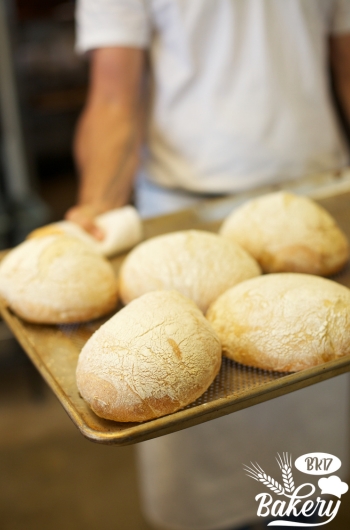
As previously mentioned, this is the most common temperature range across all types of bread. It’s rare to find tasty bread baked at a lower or higher temp than these numbers.
To ensure nothing goes wrong with the baking process, keep a close eye on the bread and revisit the oven every few minutes. Double-check the texture, base colours, and even the bread’s smell to gauge when it is close to doneness (I will return to this issue later).
Also, checking the bread’s cooking condition slightly earlier than the estimated cooking time would be recommended.
For instance, although bagel recipes usually take 30 minutes to get done, I often remove them from the domestic oven when the 28-minute mark has passed. My bagels will continue baking for a few more minutes anyways due to the lingering heat!
How To Check When Bread Is Done
Two common methods have proven effective: tap the bread’s bottom to test its hollowness or check the color (how it turns out depends on the bread type). No method is better than the other, so you can use either of them or even combine both for the best measure.
Tapping The Bottom
Remove your loaves from the oven (or pan – if you are making sandwich bread) and turn them upside down. Use your thumb to give the loaf’s bottom a few firm taps; a done bread should feel hollow under your skin.
I understand if you struggle to get used to this method; I also felt the same back in my earlier days! But after tapping my bread every 5 minutes towards the end, I could slowly realize the changes in the sound.
Observing The Colors
A loaf of bread nearing its doneness should feel firm and dry, accompanied by pronounced golden brown colors and several darker spots littering the floured surfaces.
Of course, how the shades vary depends on your bread varieties, too; you can scour the Internet to fish out images of the bread for reference. Most recipes (the good ones, by the way) also describe in detail how the final result should look; use them as your basic guide.
If the crusts look pale or different from what the recipes describe, give your bread several more minutes.
Can You Eat Slightly Undercooked Bread?
Yes, but only when the bread is VERY slightly undercooked – say, being taken out of the oven 4 or 5 minutes earlier than expected.
Otherwise, you should not play with fire – since bread made of eggs and flour is notorious for dangerous bacteria. In that case, I suggest returning the loaf to the oven to give them 10 to 20 minutes of baking time.
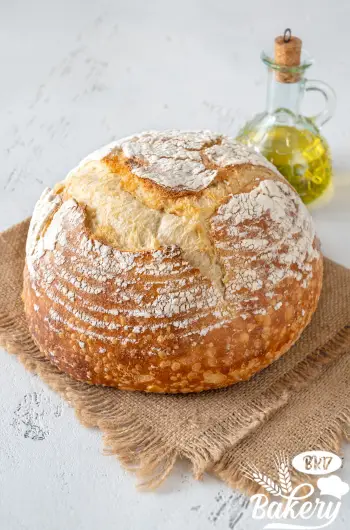
FAQs: Extra Bread Baking Tips
Is It Better to Bake Bread At A Higher Internal Temperature?
Yes. Higher temps mean faster and better rise before your crust sets. Still, be careful not to overdo it.
See more: What Temperature Is Bread Done?
Should Bread Be High Or Low Oven Temperature?
For crusty breads, the higher temp the better. But the opposite goes for soft-shelled loaves: try to bake them at the lower end of the correct temperature range.
Conclusion
My guide has detailed a full chart of temp to bake bread varieties; check if yours is listed there. If not, scour through the bread recipes (from trusted sources), seek professional baker help, or just stick to the usual 350-475°F temperature range.
Write to me anytime when you need more advice on baking methods.
